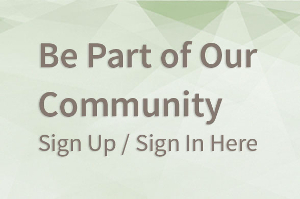BK Blog Post
Let's Give This Planet Some Goals
 Posted by
Charlotte Ashlock,
Executive Editor,
Berrett-Koehler Publishers Inc.
Posted by
Charlotte Ashlock,
Executive Editor,
Berrett-Koehler Publishers Inc.
Charlotte Ashlock is a crazy idealist trying to make the world a better place!
Do you think the world is becoming a better place or a worse one over time? Can our small actions today have repercussions far, far in the future? Can we live our lives in service to a positive future? When I read this headline: It's Unconstitutional to Ban the Homeless from Sleeping Outside, the Federal Government Says, I wrote on Facebook, "Today, I choose to believe that humans have been making the world a little bit less cruel one tiny decision at a time for centuries and eventually it will all add up and my descendants ten generations from now will be born onto something like a kind and reasonable planet." My friends and family had these different interesting responses to my post:
- "Indeed - it's a battle, but this unique thing that started in the US and spread to Europe and elsewhere - democracy, rights for all people, and more, food and medicine for all people - is an astonishing thing. With science and technology we have changed the world. Right now there is less fear, less hunger and less violence than there has ever been in the world's history. Fear is the enemy. When we are not afraid, we are willing to help others, to include them in our tribe. It's a marvelous thing."
- "When I read your post, I realize how cynical I must be. I think they will all live in a prison of regulation and be under constant surveillance and have wall-sized TVs (Fahrenheit 451 --hardly a stretch) and take soma (Brave New World) and there will be thought crimes and micro-aggressions (1984 -- again not a stretch). One tiny decision at a time. We could both be right."
- "I think you are more pessimistic than I am Charlotte. Heaven knows the world is not perfect, but things have measurably improved in my lifetime (which is 63 years, hardly the blink of an eye in historical time) and I think it will continue to. The problem is that we often get into spells of one step forward, two steps back, and then of course the progress in one area is blotted out by the regress in another."
- "Ten generations seems like a reasonable time horizon. Although I suppose by then the Earth will be a parched desert where coyotes will be roaming the ruins of Manhattan..."
In business, they teach you the key to achieving things is goal-setting and time management. So I figured it would make sense to set some more specific goals for ten generations from now. (The commonly accepted length for a generation is 25 years, so keep in mind this all needs to happen by 2265. So chop chop. Get moving.) These are my goals for ten generations from now.
-
It's considered taboo to judge anyone else's body, dress, or consensual sex life.
-
Universal health care and guaranteed survival income.
-
We treat mental health and addiction issues non-punitively, and the justice system is based on restorative justice principles.
-
We've by and large accepted it's wiser to cherish and value difference than it is to stigmatize or stifle it.
-
Zero unemployment, (but most choose to work less than 40 hours so as to have time for family and hobbies).
-
Education is fun, lifelong, free, and does not use grades to reinforce oppressive social hierarchies.
-
Public cafeterias full of healthy delicious food and everyone goes there to make friends.
-
Access to all media and information is a public service like water or electricity.
-
People volunteer for amazing projects in art, science, and charity via the "social media of workplace collaboration" that spans the globe.
-
There are no bosses. The concept is quaint and obsolete, like kings.
So what made me pick these goals over others? When I was in college, I was very focused on environmentalism and saving the planet. Since then, I've realized the way we treat the planet is a symptom of the way we treat each other. The planet-gouging greed is rooted in pathological fear. The origin of the fear is that we live in a world with no guarantees of physical or emotional safety. Which is why my ten points all address physical and emotional safety; people who feel safe behave less dysfunctionally. Trying to change consumption habits is chopping at the branches, whereas establishing the fundamental right to security is a profound cultural change at the roots-- from which all other needed changes can flow. I think we can make it, maybe even a couple generations early! What about you?! Let's go go go!!!





